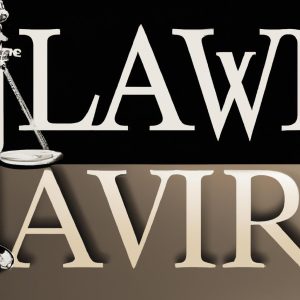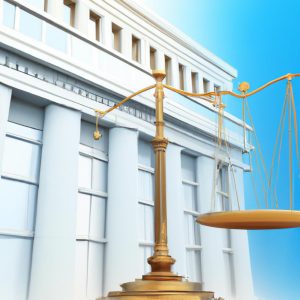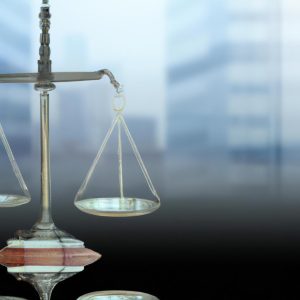Welcome to Morgan Legal Group, where we specialize in navigating the complex legal landscape of estate planning, probate, elder law, Wills, and trusts. In today’s article, we delve into the intricate world of probate hearings. As seasoned professionals in the field, we understand the importance of demystifying the probate process for our clients. Join us as we explore the fundamental aspects of what a probate hearing entails and how it impacts the distribution of assets in matters of inheritance.
Understanding the Purpose of a Probate Hearing
Probate hearings play a crucial role in the legal process of administering the estate of a deceased individual. These hearings are convened to address various issues related to the distribution of assets, payment of debts, and resolution of disputes among beneficiaries. The primary purpose of a probate hearing is to ensure that the deceased person’s wishes, as outlined in their will, are carried out in a fair and transparent manner.
During a probate hearing, the court will review the will, hear testimony from interested parties, and make decisions on how the estate should be managed. This process helps to protect the rights of all involved parties and ensures that the estate is distributed according to the law. It is important for individuals involved in a probate hearing to seek legal guidance from experienced professionals to navigate the complexities of the probate process.
Key Components of a Probate Hearing Process
During a probate hearing process, several key components must be addressed to ensure the proper settlement of the deceased individual’s estate. These components include:
- Proof of Will: The validity of the deceased individual’s will must be established during the probate hearing. This involves presenting the original will and any supporting documents to the court for review.
- Appointment of Executor: The court will appoint an executor to oversee the distribution of the deceased individual’s assets according to the terms outlined in the will. The executor is responsible for carrying out the deceased individual’s final wishes and ensuring that all debts and taxes are paid.
- Distribution of Assets: Once the will has been validated and an executor appointed, the court will oversee the distribution of the deceased individual’s assets to the designated beneficiaries. This process is crucial in ensuring that the deceased individual’s final wishes are carried out effectively.
| Component | Description |
|---|---|
| Proof of Will | Establishing the validity of the deceased individual’s will. |
| Appointment of Executor | Court appointing an executor to oversee asset distribution. |
| Distribution of Assets | Court overseeing the distribution of assets to beneficiaries. |
Navigating Legal Requirements and Documentation in Probate Hearings
Probate hearings can be complex legal proceedings that involve the validation and distribution of a deceased person’s assets. During a probate hearing, the court reviews the deceased person’s will, identifies and appraises the assets, pays off any debts and taxes owed by the estate, and ultimately distributes the remaining assets to the beneficiaries. It is crucial to navigate the legal requirements and documentation in probate hearings meticulously to ensure a smooth and fair process.
One of the key elements in a probate hearing is proper documentation. This includes gathering and organizing all relevant paperwork such as the deceased person’s will, financial records, property titles, and debt information. It is essential to present clear and accurate documentation to the court to avoid delays or complications in the probate process. Additionally, understanding the legal requirements surrounding probate hearings, such as deadlines for filing documents or notifying heirs, is crucial for a successful outcome. Working with an experienced probate attorney can help guide you through the process and ensure compliance with all legal requirements.
Expert Advice for Success in Probate Proceedings
During a probate hearing, the court will review the deceased person’s will (if there is one) to determine its validity. This is a crucial step in the probate process, as it allows the court to ensure that the deceased’s wishes are followed and that any disputes among beneficiaries are resolved. Additionally, the court will oversee the distribution of the deceased person’s assets to the rightful heirs and creditors. It is essential to have knowledgeable legal representation during a probate hearing to navigate the complexities of the process and ensure a successful outcome.
At Morgan Legal Group, our team of experienced probate attorneys has a deep understanding of probate proceedings and can provide expert advice to help you navigate the process with confidence. Whether you are a beneficiary, executor, or creditor involved in a probate hearing, our attorneys can provide the guidance and support you need to achieve a favorable outcome. From understanding your rights and obligations to effectively presenting your case in court, our team is committed to advocating for your best interests throughout the probate process.
Q&A
Q: What is a probate hearing?
A: A probate hearing is a legal proceeding in which the validity of a will is determined, or in cases where there is no will, the assets and debts of a deceased person are distributed.
Q: Who typically attends a probate hearing?
A: Parties that typically attend a probate hearing include the executor of the will, beneficiaries, creditors, and any party contesting the will.
Q: What happens during a probate hearing?
A: During a probate hearing, the court reviews the will (if there is one) and any objections to determine the rightful distribution of the deceased person’s assets.
Q: How long does a probate hearing typically last?
A: The length of a probate hearing can vary depending on the complexity of the case, but they are usually resolved within a few hours to a few days.
Q: What is the outcome of a probate hearing?
A: The outcome of a probate hearing is the court’s decision on the validity of the will and the fair distribution of assets and liabilities among the beneficiaries.
To Conclude
In conclusion, a probate hearing is a crucial part of the probate process where a judge determines the validity of a will and oversees the distribution of assets to beneficiaries. It is a formal and structured legal proceeding that aims to ensure that the deceased’s final wishes are carried out properly. By understanding the purpose and procedures of a probate hearing, individuals can navigate the complex legal system with confidence and peace of mind. Whether you are a prospective executor or heir, being informed about probate hearings can make the process smoother and more manageable. So, remember to seek legal guidance and be prepared for what lies ahead in the probate journey.










